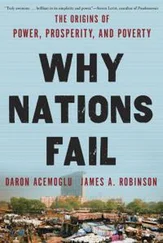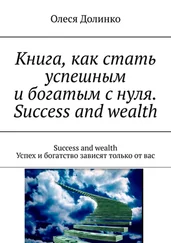Adam Smith - Wealth of Nations
Здесь есть возможность читать онлайн «Adam Smith - Wealth of Nations» — ознакомительный отрывок электронной книги совершенно бесплатно, а после прочтения отрывка купить полную версию. В некоторых случаях можно слушать аудио, скачать через торрент в формате fb2 и присутствует краткое содержание. Жанр: unrecognised, на английском языке. Описание произведения, (предисловие) а так же отзывы посетителей доступны на портале библиотеки ЛибКат.
- Название:Wealth of Nations
- Автор:
- Жанр:
- Год:неизвестен
- ISBN:нет данных
- Рейтинг книги:4 / 5. Голосов: 1
-
Избранное:Добавить в избранное
- Отзывы:
-
Ваша оценка:
- 80
- 1
- 2
- 3
- 4
- 5
Wealth of Nations: краткое содержание, описание и аннотация
Предлагаем к чтению аннотацию, описание, краткое содержание или предисловие (зависит от того, что написал сам автор книги «Wealth of Nations»). Если вы не нашли необходимую информацию о книге — напишите в комментариях, мы постараемся отыскать её.
Adam Smith's masterpiece, first published in 1776, is the foundation of modern economic thought and remains the single most important account of the rise of, and the principles behind, modern capitalism. Written in clear and incisive prose, The Wealth of Nations articulates the concepts indispensable to an understanding of contemporary society.
Wealth of Nations — читать онлайн ознакомительный отрывок
Ниже представлен текст книги, разбитый по страницам. Система сохранения места последней прочитанной страницы, позволяет с удобством читать онлайн бесплатно книгу «Wealth of Nations», без необходимости каждый раз заново искать на чём Вы остановились. Поставьте закладку, и сможете в любой момент перейти на страницу, на которой закончили чтение.
Интервал:
Закладка:
From these different facts, therefore, we seem to have some reason to conclude that, about the middle of the fourteenth century, and for a considerable time before, the average or ordinary price of the quarter of wheat was not supposed to be less than four ounces of silver, Tower weight.
From about the middle of the fourteenth to the beginning of the sixteenth century, what was reckoned the reasonable and moderate, that is the ordinary or average price of wheat, seems to have sunk gradually to about one-half of this price; so as at last to have fallen to about two ounces of silver, Tower weight, equal to about ten shillings of our present money. It continued to be estimated at this price till about 1570.
In the household book of Henry, the fifth Earl of Northumberland, drawn up in 1512, there are two different estimations of wheat. In one of them it is computed at six shillings and eightpence the quarter, in the other at five shillings and eightpence only. In 1512, six shillings and eightpence contained only two ounces of silver, Tower weight, and were equal to about ten shillings of our present money.
From the 25th of Edward III to the beginning of the reign of Elizabeth, during the space of more than two hundred years, six shillings and eightpence, it appears from several different statutes, had continued to be considered as what is called the moderate and reasonable, that is the ordinary or average price of wheat. The quantity of silver, however, contained in that nominal sum was, during the course of this period, continually diminishing, in consequence of some alterations which were made in the coin. But the increase of the value of silver had, it seems, so far compensated the diminution of the quantity of it contained in the same nominal sum that the legislature did not think it worth while to attend to this circumstance.
Thus in 1436 it was enacted that wheat might be exported without a licence when the price was so low as six shillings and eightpence; and in 1463 it was enacted that no wheat should be imported if the price was not above six shillings and eightpence the quarter. The legislature had imagined that when the price was so low there could be no inconveniency in exportation, but that when it rose higher it became prudent to allow importation. Six shillings and eightpence, therefore, containing about the same quantity of silver as thirteen shillings and fourpence of our present money (one third part less than the same nominal sum contained in the time of Edward III), had in those times been considered as what is called the moderate and reasonable price of wheat.
In 1554, by the 1st and 2nd of Philip and Mary; and in 1558, by the 1st of Elizabeth, the exportation of wheat was in the same manner prohibited, whenever the price of the quarter should exceed six shillings and eightpence, which did not then contain two pennyworth more silver than the same nominal sum does at present. But it had soon been found that to restrain the exportation of wheat till the price was so very low was, in reality, to prohibit it altogether. In 1562, therefore, by the 5th of Elizabeth, the exportation of wheat was allowed from certain ports whenever the price of the quarter should not exceed ten shillings, containing nearly the same quantity of silver as the like nominal sum does at present. This price had at this time, therefore, been considered as what is called the moderate and reasonable price of wheat. It agrees nearly with the estimation of the Northumberland book in 1512.
That in France the average price of grain was, in the same manner, much lower in the end of the fifteenth and beginning of the sixteenth century than in the two centuries preceding has been observed both by Mr. Dupre de St. Maur, and by the elegant author of the Essay on the police of grain. Its price, during the same period, had probably sunk in the same manner through the greater part of Europe.
This rise in the value of silver in proportion to that of corn, may either have been owing altogether to the increase of the demand for that metal, in consequence of increasing improvement and cultivation, the supply in the meantime continuing the same as before; or, the demand continuing the same as before, it may have been owing altogether to the gradual diminution of the supply; the greater part of the mines which were then known in the world being much exhausted, and consequently the expense of working them much increased; or it may have been owing partly to the other of those two circumstances. In the end of the fifteenth and beginning of the sixteenth centuries, the greater part of Europe was approaching towards a more settled form of government than it had enjoyed for several ages before. The increase of security would naturally increase industry and improvement; and the demand for the precious metals, as well as for every other luxury and ornament, would naturally increase with the increase of riches. A greater annual produce would require a greater quantity of coin to circulate it; and a greater number of rich people would require a greater quantity of plate and other ornaments of silver. It is natural to suppose, too, that the greater part of the mines which then supplied the European market with silver might be a good deal exhausted, and have become more expensive in the working. They had been wrought many of them from the time of the Romans.
It has been the opinion, however, of the greater part of those who have written upon the price of commodities in ancient times that, from the Conquest, perhaps from the invasion of Julius Caesar till the discovery of the mines of America, the value of silver was continually diminishing. This opinion they seem to have been led into, partly by the observations which they had occasion to make upon the prices both of corn and of some other parts of the rude produce of land; and partly by the popular notion that as the quantity of silver naturally increases in every country with the increase of wealth, so its value diminishes as its quantity increases.
In their observations upon the prices of corn, three different circumstances seem frequently to have misled them.
First, in ancient times almost all rents were paid in kind; in a certain quantity of corn, cattle, poultry, etc. It sometimes happened, however, that the landlord would stipulate that he should be at liberty to demand of the tenant, either the annual payment in kind, or a certain sum of money instead of it. The price at which the payment in kind was in this manner exchanged for a certain sum of money is in Scotland called the conversion price. As the option is always in the landlord to take either the substance or the price, it is necessary for the safety of the tenant that the conversion price should rather be below than above the average market price. In many places, accordingly, it is not much above one-half of this price. Through the greater part of Scotland this custom still continues with regard to poultry, and in some places with regard to cattle. It might probably have continued to take place, too, with regard to corn, had not the institution of the public fiars put an end to it. These are annual valuations, according to the judgment of an assize, of the average price of all the different sorts of grain, and of all the different qualities of each, according to the actual market price in every different county. This institution rendered it sufficiently safe for the tenant, and much more convenient for the landlord, to convert, as they call it, the corn rent, rather at what should happen to be the price of the fiars of each year, than at any certain fixed price. But the writers who have collected the prices of corn in ancient times seem frequently to have mistaken what is called in Scotland the conversion price for the actual market price. Fleetwood acknowledges, upon one occasion, that he had made this mistake. As he wrote his book, however, for a particular purpose, he does not think proper to make this acknowledgment till after transcribing this conversion price fifteen times. The price is eight shillings the quarter of wheat. This sum in 1423, the year at which he begins with it, contained the same quantity of silver as sixteen shillings of our present money. But in 1562, the year at which he ends with it, it contained no more than the same nominal sum does at present.
Читать дальшеИнтервал:
Закладка:
Похожие книги на «Wealth of Nations»
Представляем Вашему вниманию похожие книги на «Wealth of Nations» списком для выбора. Мы отобрали схожую по названию и смыслу литературу в надежде предоставить читателям больше вариантов отыскать новые, интересные, ещё непрочитанные произведения.
Обсуждение, отзывы о книге «Wealth of Nations» и просто собственные мнения читателей. Оставьте ваши комментарии, напишите, что Вы думаете о произведении, его смысле или главных героях. Укажите что конкретно понравилось, а что нет, и почему Вы так считаете.












